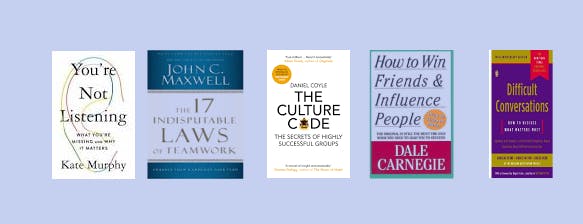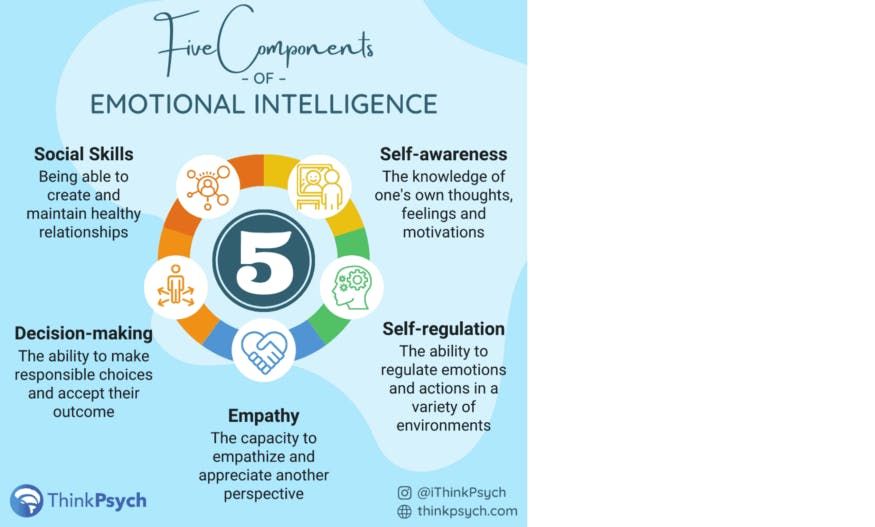Table of contents
No headings in the article.
As communication means different things to different people, we need to improve our communication skills every day as we interact with them. we can learn the language of our environment and communicate with it. However, in this article, I will focus more on communication in the workplace as it relates to product managers. Communicating effectively and listening actively is one of the crucial skills every product manager should learn. It sustains relationships, bridges the gap between what was said and what was understood, and ensures alignment with people, products, and processes. I will share valid points from my experience below;
Communication differs from Talking
Technical skills might give you a seat in the house, but people skills will determine how much time you have got left. In my first job as a sales manager, I struggled to relate with other sales representatives and this kept causing friction in our communication during the first year. honestly, I knew the job, I knew our customers, I knew the market, and I understood the seasons but none of these kept me as the Sales Manager, I instead took all the responsibilities than talking to them. A few months into the second year, someone else was employed as the Sales and marketing manager, and I had to report to him, I thought I would be laid off in a few months, but he was actually employed to teach me how to communicate, and his influence was eventful, some days he would leave me to interact with all the sales rep, till he moved to a larger company. I came to understand that dictating processes to your team does not necessitate communication nor will it force them to exude the same passion for the goal as you, especially when they don’t report to you directly.
So I learned to communicate these rules through my relationship with them. I developed the servant leadership style, and this helped me influence them. As I secured a position as a customer service manager and a human resources manager, I came across these two outstanding books: How to Win Friends and Influence People by Dale Carnegie and Difficult Conversation by Douglas Stone. These books changed my life and overhauled my perspective on communication. I understood my communication patterns and how they differ from others. I realized that talking doesn’t necessarily mean you communicate. Do you speak their language? How do you measure if they were actually listening to you? Do you understand what they are doing or expected to do? Learn to apply what you read as you go. You can check out these books, Trust me, you won’t regret it.

Applying what I learned in these books, Improved my communication skills. Gather knowledge.
Read, research, learn, and unlearn.
As a product lead during my Bootcamp, working with a team of developers, I needed to familiarize myself with terms such as APIs, server codes, getting reports with SQL, adding a line of text via HTML, knowing the different javascript frameworks such as node js or react js, for front end developer and, python, C++ and PHP, etc for the backend. Understanding version control, and GitHub terminologies such as fork, pull, and branch, designing a UI feature, etc. While these roles are not a hell-bent requirement for every product manager, it is necessary to understand these terms and how they can be applied during software development. so that you can collaborate effectively across cross-functional teams.
Knowledge is a requirement for communication. As a product manager, you need to be up to date with news and recent developments within your industry and that of your competitors. While effective communication is the wheel that drives successful relationships and overall productivity in an organization, knowledge lubricates it. Having knowledge about your users is the first step in understanding the problems you want to solve. That is why creating user personas is crucial in any product case study. As a leader by influence, having knowledge about the product, users and the target market will enable you to influence your team effectively. It is also important you prioritize your reading accordingly to avoid information overload. However, being knowledgeable doesn’t mean you have to be presumptuous. Things could change as well. Develop an open mind to learn from everyone, including that intern. Try to understand rather than dish out quick responses as questions or problems come to you. This will save you from unseen loopholes in your career path. Maintain a growth mindset as you learn.
Improve your Emotional intelligence
 With great responsibility comes leadership, especially when you lead by influence. You must not react to everything people do. If you do, I am not sure you will succeed as a product manager or in any leadership role. I recall calling a meeting with my team. I notified everyone through calls and reminded them by mail. In the end, just a few people showed up, out of 12 people, and no one at least gave an excuse that they might not be available at the scheduled time. I stood there for an hour before leaving. What would you do at this point? Well, you can as well make excuses for them. Maybe there was a situation they had no control over. Startup founders can easily relate to this, or maybe you are leading a team where the team leader is held accountable and not the members. Always make sure that your team understands the goals and that they have found a way to align them personally. If the big picture is communicated at the beginning and more often, your team would be aware of what is at stake and the risks that might be faced when performance is not optimized. There might be times someone may fall out with you, and it might be left to you to remind the person of the ethics guiding the workplace. however, be kind with your truths when you tell them. Internal politics might be too strong, depending on the organization's culture, so it’s essential you work on how you react to certain setups and mind games people play during teamwork. It happens, so talk to everybody, use the right words, react mindfully, and uphold ethics consistently. I recommend you take this course, You will learn a lot!
coursera.org/learn/wharton-people-analytics
With great responsibility comes leadership, especially when you lead by influence. You must not react to everything people do. If you do, I am not sure you will succeed as a product manager or in any leadership role. I recall calling a meeting with my team. I notified everyone through calls and reminded them by mail. In the end, just a few people showed up, out of 12 people, and no one at least gave an excuse that they might not be available at the scheduled time. I stood there for an hour before leaving. What would you do at this point? Well, you can as well make excuses for them. Maybe there was a situation they had no control over. Startup founders can easily relate to this, or maybe you are leading a team where the team leader is held accountable and not the members. Always make sure that your team understands the goals and that they have found a way to align them personally. If the big picture is communicated at the beginning and more often, your team would be aware of what is at stake and the risks that might be faced when performance is not optimized. There might be times someone may fall out with you, and it might be left to you to remind the person of the ethics guiding the workplace. however, be kind with your truths when you tell them. Internal politics might be too strong, depending on the organization's culture, so it’s essential you work on how you react to certain setups and mind games people play during teamwork. It happens, so talk to everybody, use the right words, react mindfully, and uphold ethics consistently. I recommend you take this course, You will learn a lot!
coursera.org/learn/wharton-people-analytics
Understand your Senior Manager.
Your success as a leader or in your career as a product manager does not lie in understanding your team alone; a large chunk of it lies in understanding the senior manager, product owner, or your head of department. In my first month as a human resource manager, I built it around my employer. When the vacancy for a virtual assistant came up, I volunteered for the position immediately. Was it overwhelming? Yes! Did I experience burnout? Yes! Did I regret taking up the position? Sometimes, but was my goal achieved? Yes, that’s all that matters, the end result. I worked as his VA for 3 months. It made my job in HR seamless. Relating with him made me understand his expectations for the company, and that was how I approached my tasks. Most importantly, I understood my boundaries and did not overstep them. As a product manager, it is pertinent that you understand how decisions are made in the hierarchy of the workplace as well as keep tabs on the stakeholders for effective communication. This will save you from unnecessary burnout and costly assumptions, which can really affect your career. Keep your tabs on your stakeholders, report consistently, and ask questions. And when the need arises, you can make good assumptions because you have had a thorough observation of the people (stakeholders), product, and process.
Conclusion Where are you on your current journey? Though I extracted this from my personal experience, I know it resonates with a few or more persons. Are you still finding it difficult, maybe you need to loosen up a bit. Don’t be too hard on yourself because learning how to communicate is a gradual process. so Read books and apply what you read, it would go a long way.
Thank you for reading!

